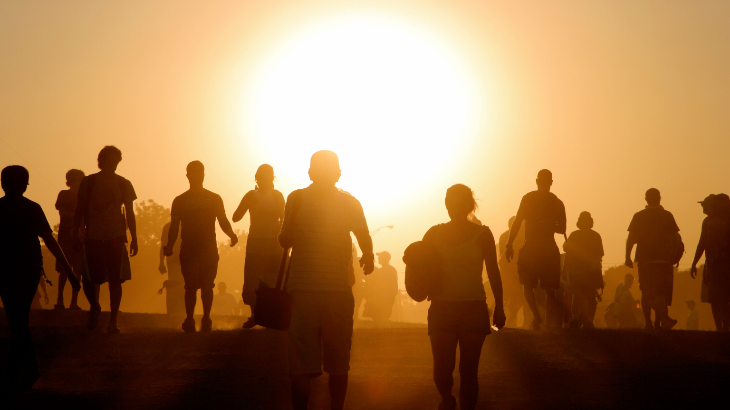GBGW 2023: Why don't we all care about climate change?

While researching the basis of my own climate anxiety, I began to form a picture of why some people don’t seem to care about the climate and biodiversity crises.
I try to weave sustainability into every aspect of my life. Every decision I make I have the environment at the forefront of my mind. Every conversation I have, every purchase I consider, even the films and TV I watch I’m wondering about the carbon footprint of production, or evaluating environmental messages. I nag my family about how long they are taking to peruse the contents of the freezer with all that warm air rushing in, and I wince if I hit an insect while driving. So it fascinates me when other people just don’t seem to get it: jetting off on multiple return flights a year, leaving their car engine idling, buying fast fashion like it’s going out of…fashion.
What could be driving this denial?
When I think of climate deniers, I think of people in powerful positions such as CEOs of oil companies, politicians and others with financial or political motives. However, I was enlightened by a TED talk by Patrick Belmont, where climate deniers were considered not just as those who actively work against tackling climate change, but also ‘passive’ deniers, who accept there is a problem, but continue to pollute for various reasons, such as those who believe technology or offsetting is the answer or who feel they cannot make a difference, so why bother? During that talk, a new definition of a climate denier was proposed as someone with a large carbon footprint (i.e. all of us in the Westernized world) who is not actively trying every day to reduce that footprint.
But what about those people who still aren’t fully aware of the problem, despite all the mainstream media coverage? From all that I’ve read and watched, it seems there’s a multitude of factors:
· Its effects are invisible – it’s difficult to ascribe the odd storm to climate change and we can’t truly visualize the decline in our native species.
· The cause is invisible – labelling items and activities to show associated carbon dioxide or equivalent emissions, may help tackle this.
· It’s gradual – perhaps we would be able to ascribe extreme weather events to climate change if they were suddenly happening every week.
· It’s not affecting us personally – while we may feel sympathy for victims of floods or fires in far away regions, I feel there may be an element of dissociation from our own reality.
And then there’s the case of knowing on some level that there is a problem but not facing up to it because:
· It’s painful – and we are all striving for happiness, so it’s safer psychologically to ignore it.
· No-one else seems to be that worried – my friends and family aren’t worried, and the government aren’t telling us to stop flying, so surely it can’t be that bad?
· There’s more pressing issues – the cost of living crisis, a pandemic, war, personal issues.
I think the most worrying of all these is wanting to ignore it because it’s too painful. Actually, our negative emotions are important to energise us, so if we can harness them, we can leverage them to help us find solutions through taking action. This may ultimately lead to a profound happiness that we can derive from living by our values, which I feel is a great antidote to chasing the short-lived instant gratification that comes from purchasing stuff. As is practising gratitude – which can help us connect more deeply with nature. Developing compassion for others and nature could in turn motivate individuals to protect each other and our wildlife, as we feel more connected and part of a global community of humans and all the other species.
I live in hope that we will soon reach a tipping point where the social pressure to protect our habitat becomes so great that it is the norm.
